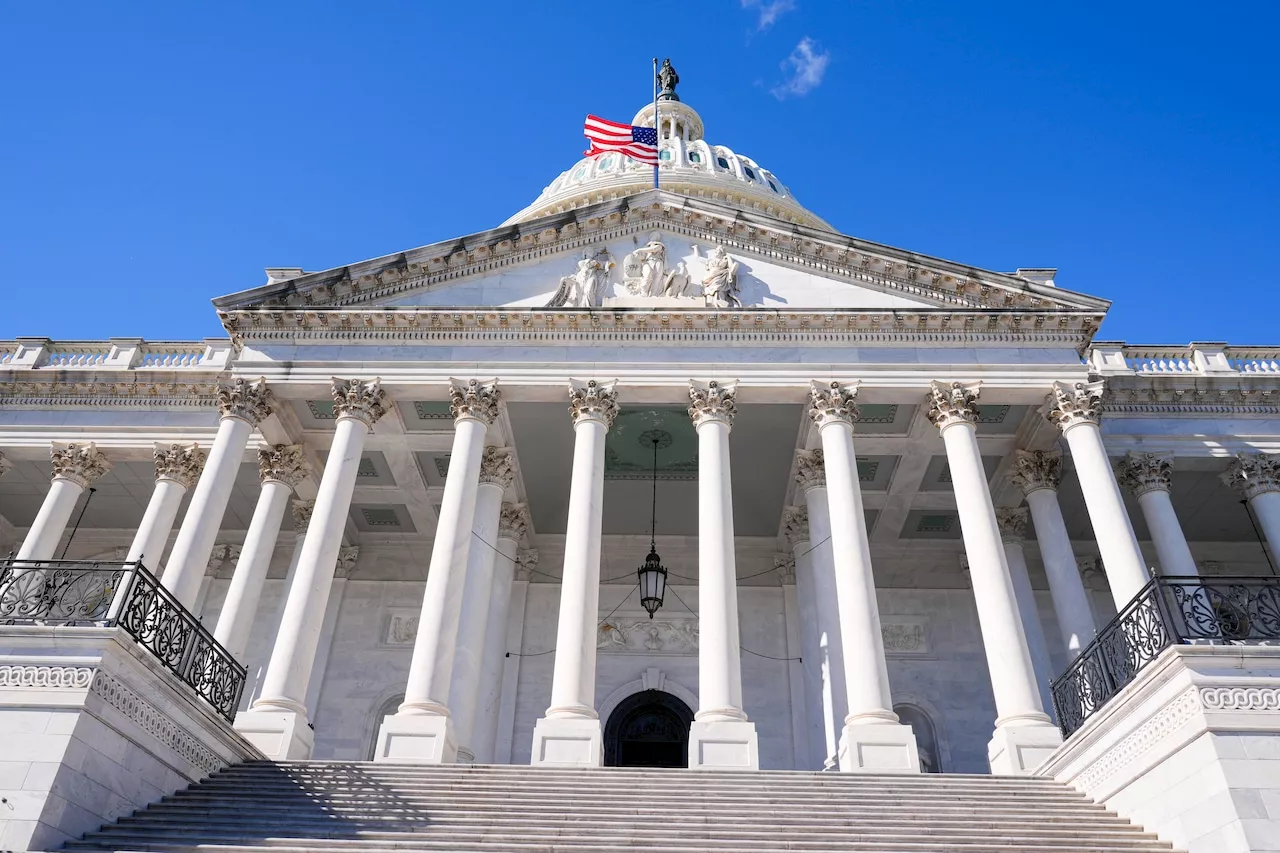Politics
Senate Advances Bipartisan Deal to End Government Shutdown

The United States Senate voted 60-40 to advance a bipartisan agreement aimed at ending the ongoing government shutdown, which has persisted for over a month. This compromise was reached after moderate Democrats opted to proceed without a guaranteed extension of health care subsidies, a decision that has sparked significant dissent within their party.
Key Details of the Compromise
This legislative package includes provisions to fund the government through late January 2026, a mid-December vote on extending Affordable Care Act tax credits, and measures to restore back pay for federal workers affected by the shutdown that began on October 1, 2025. The deal was facilitated by a group of three senators from New Hampshire and Maine: Jeanne Shaheen, Maggie Hassan, and Angus King, who were pivotal in breaking a six-week deadlock.
Despite the progress made, Senate Democratic leader Chuck Schumer opposed the measure, citing concerns over the lack of a firm commitment to extend the health care subsidies, which have been a central point of contention for Democrats. He remarked that he could not “in good faith” support the proposal, reflecting the frustration felt by many within the party.
The absence of a guaranteed extension for health care subsidies has led to backlash from some Democratic members. Notably, Senator Bernie Sanders, who aligns with the Democrats, characterized the decision as a “horrific mistake,” indicating a growing divide between moderate and progressive factions of the party.
Political Reactions and Implications
While several moderate Democrats supported the deal, including Tim Kaine from Virginia and Dick Durbin, the second-ranking Democrat, the overall support from the party was less than anticipated. Only five Democrats joined the moderates in voting for the deal, which was the necessary number to secure passage alongside Republican support.
Senate Majority Leader John Thune quickly endorsed the agreement, pushing for an immediate vote to expedite the approval process amid the ongoing impacts of the shutdown, which have included disruptions to federal services and increased financial strain on federal employees.
Former President Donald Trump commented on the situation, stating, “It looks like we’re getting close to the shutdown ending,” although he did not explicitly endorse the agreement. His remarks highlight the delicate balance of opinions among Republican leadership regarding the health care issue.
The Senate’s decision has implications beyond immediate funding; it also reinstates federal workers who faced layoffs and provides back pay for those affected. This aspect of the deal has been praised by some lawmakers as a necessary step to alleviate the hardships caused by the shutdown.
Looking ahead, the future of the health care subsidies remains uncertain. House Speaker Mike Johnson has expressed reluctance to bring the issue to a vote in the House, while some Republicans have indicated openness to discussions about extending the subsidies, albeit with conditions regarding eligibility and funding routes.
As the situation evolves, Democrats remain committed to advocating for health care reforms. Hakeem Jeffries, the House Democratic leader, emphasized the party’s responsibility to address the challenges faced by the American public, framing the shutdown as a crisis created by Republican policies.
The ongoing negotiations and political maneuvers will shape the legislative landscape in the coming weeks, particularly as lawmakers prepare for the anticipated December vote on extending the Affordable Care Act tax credits. The stakes are high, both for the future of health care funding and for the political fortunes of the parties involved.
-

 World3 weeks ago
World3 weeks agoGlobal Air Forces Ranked by Annual Defense Budgets in 2025
-

 World4 weeks ago
World4 weeks agoMass Production of F-35 Fighter Jet Drives Down Costs
-

 Science4 weeks ago
Science4 weeks agoTime Crystals Revolutionize Quantum Computing Potential
-

 Top Stories4 weeks ago
Top Stories4 weeks agoNew ‘Star Trek: Voyager’ Game Demo Released, Players Test Limits
-

 World4 weeks ago
World4 weeks agoElectrification Challenges Demand Advanced Multiphysics Modeling
-

 Business4 weeks ago
Business4 weeks agoGold Investment Surge: Top Mutual Funds and ETF Alternatives
-

 Top Stories4 weeks ago
Top Stories4 weeks agoDirecTV to Launch AI-Driven Ads with User Likenesses in 2026
-

 Lifestyle3 weeks ago
Lifestyle3 weeks agoDiscover Reese Witherspoon’s Chic Dining Room Style for Under $25
-

 Entertainment4 weeks ago
Entertainment4 weeks agoFreeport Art Gallery Transforms Waste into Creative Masterpieces
-

 Health3 weeks ago
Health3 weeks agoGavin Newsom Critiques Trump’s Health and National Guard Plans
-

 Business4 weeks ago
Business4 weeks agoUS Government Denies Coal Lease Bid, Impacting Industry Revival Efforts
-

 Lifestyle3 weeks ago
Lifestyle3 weeks agoLia Thomas Honored with ‘Voice of Inspiration’ Award at Dodgers Event







